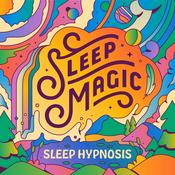People Who Read People: A Behavior and Psychology Podcast
Zachary Elwood

Último episodio
200 episodios
- What actually works to avoid violent outcomes when someone is armed, emotional, and on the edge? I talk with former FBI chief hostage negotiator Gary Noesner, author of Stalling for Time, about the psychology of high-stakes crisis situations — including lessons from Waco (part of which he was present for) and other cases Gary explains the “paradox of power” (why pushing aggressively often backfires), and why most so-called hostage situations are really emotional crises, not bargaining contests. We also discuss the limits of reading body language and behavior, the power of active listening, and the importance of tone of voice and how you phrase things.
Learn more about your ad choices. Visit megaphone.fm/adchoices Pro negotiator discusses the “power of nice” and reading body language | with Andres Lares
09/2/2026 | 1 h 6 minWhat actually makes negotiations work—and why do so many “tough” tactics backfire? In this episode, Zach talks with professional negotiator Andres Lares about why the most effective deals rarely come from trying to win at all costs. Drawing from sports contracts, Fortune 500 negotiations, and decades of real-world experience, Andres explains the “power of nice,” the importance of looking for creative win-win approaches, and why public posturing can kill agreements. They also dig into the hype around body language—what’s useful, what’s overblown, and what actually matters when you’re trying to read and influence people in the real world. Andres also talks about his views on AI-assisted sales-presentation-analysis programs (like Gong and Chorus). We also talk about the realism, or lack of it, in the movie Jerry McGuire. Andres is the CEO and Managing Partner of Shapiro Negotiations Institute (SNI), and the co-author of “Persuade: The 4-Step Process to Influence People and Decisions.”
Learn more about your ad choices. Visit megaphone.fm/adchoicesFBI agent discusses interrogation tactics, body language, the lie detector, and more
31/1/2026 | 1 h 24 minA talk with Eric Robinson, a recently retired Federal Bureau of Investigation agent and former pastor, about what actually works in real-world interrogations—and what doesn’t. Drawing on 24 years in the FBI, Eric explains why techniques like friendliness and rapport are so powerful, discusses the use of silence to induce information-sharing, and talks about the importance of asking only a single question at a time. Eric also explains why he thinks nonverbal “body language” cues are not useful in law enforcement and interrogation settings. Other topics include: the reasons why so many people talk at length to police, despite it being so well known that you should ask for a lawyer; the downsides and risks of deceiving people to try to get information and confessions; some body language ideas discussed in Joe Navarro’s books; Eric’s opinions on the lie detector; and more.
Learn more about your ad choices. Visit megaphone.fm/adchoices- A talk with Doug Teschner and Beth Malow—co-authors of the book Beyond the Politics of Contempt—about an aspect of bridge-building/depolarization-aimed work that rarely gets discussed: the backlash. We dig into the criticisms and skepticism that people on both “sides” throw at bridge-building efforts—claims that it’s naive, weak, morally compromised, or even a form of complicity with the "bad guys." We talk about why contempt can feel justified and righteous, how protest and resistance can unintentionally fuel us-vs-them cycles, and why simply “listening” is often seen as legitimizing harmful views. If you’ve ever thought “that empathetic bridge-building stuff all sounds nice, but now isn’t the time”—or if you’ve rolled your eyes at such work altogether—there’s a good chance this conversation addresses some objections you have.
Learn more about your ad choices. Visit megaphone.fm/adchoices - A talk with former CIA officer Kent Clizbe about his exposure of Wayne Simmons, a man who spent more than a decade on Fox News posing as a CIA counterterrorism expert—but who was a fraud and serial liar. And we talk about how that case mirrors the case of Chase Hughes, who claims to know advanced, top-secret techniques and intelligence, and who has gained many fans, but who is a clear fraud. Topics discussed: how Kent met Wayne Simmons; why he suspected rather quickly he was a fake; how Kent’s intuition about Wayne relates to Kent’s system of holistic contextual analysis, which Kent has a book about; and the negative impacts on Kent’s life from questioning Wayne Simmons. We dig into the psychology of belief, the social and career incentives that keep scams alive, and why fans and followers resist evidence even after it’s laid out clearly.
Learn more about your ad choices. Visit megaphone.fm/adchoices
Más podcasts de Salud y forma física
Podcasts a la moda de Salud y forma física
Acerca de People Who Read People: A Behavior and Psychology Podcast
This is a podcast about deciphering human behavior and understanding why people do the things they do. I, Zach Elwood, talk with people from a wide range of fields about how they make sense of human behavior and psychology. I've talked to jury consultants, interrogation professionals, behavior researchers, sports analysts, professional poker players, to name a few. There are more than 135 episodes, many of them quite good (although some say I'm biased). To learn more, go to PeopleWhoReadPeople.com.
Sitio web del podcastEscucha People Who Read People: A Behavior and Psychology Podcast, Ad Propositum y muchos más podcasts de todo el mundo con la aplicación de radio.net

Descarga la app gratuita: radio.net
- Añadir radios y podcasts a favoritos
- Transmisión por Wi-Fi y Bluetooth
- Carplay & Android Auto compatible
- Muchas otras funciones de la app
Descarga la app gratuita: radio.net
- Añadir radios y podcasts a favoritos
- Transmisión por Wi-Fi y Bluetooth
- Carplay & Android Auto compatible
- Muchas otras funciones de la app


People Who Read People: A Behavior and Psychology Podcast
Escanea el código,
Descarga la app,
Escucha.
Descarga la app,
Escucha.

































